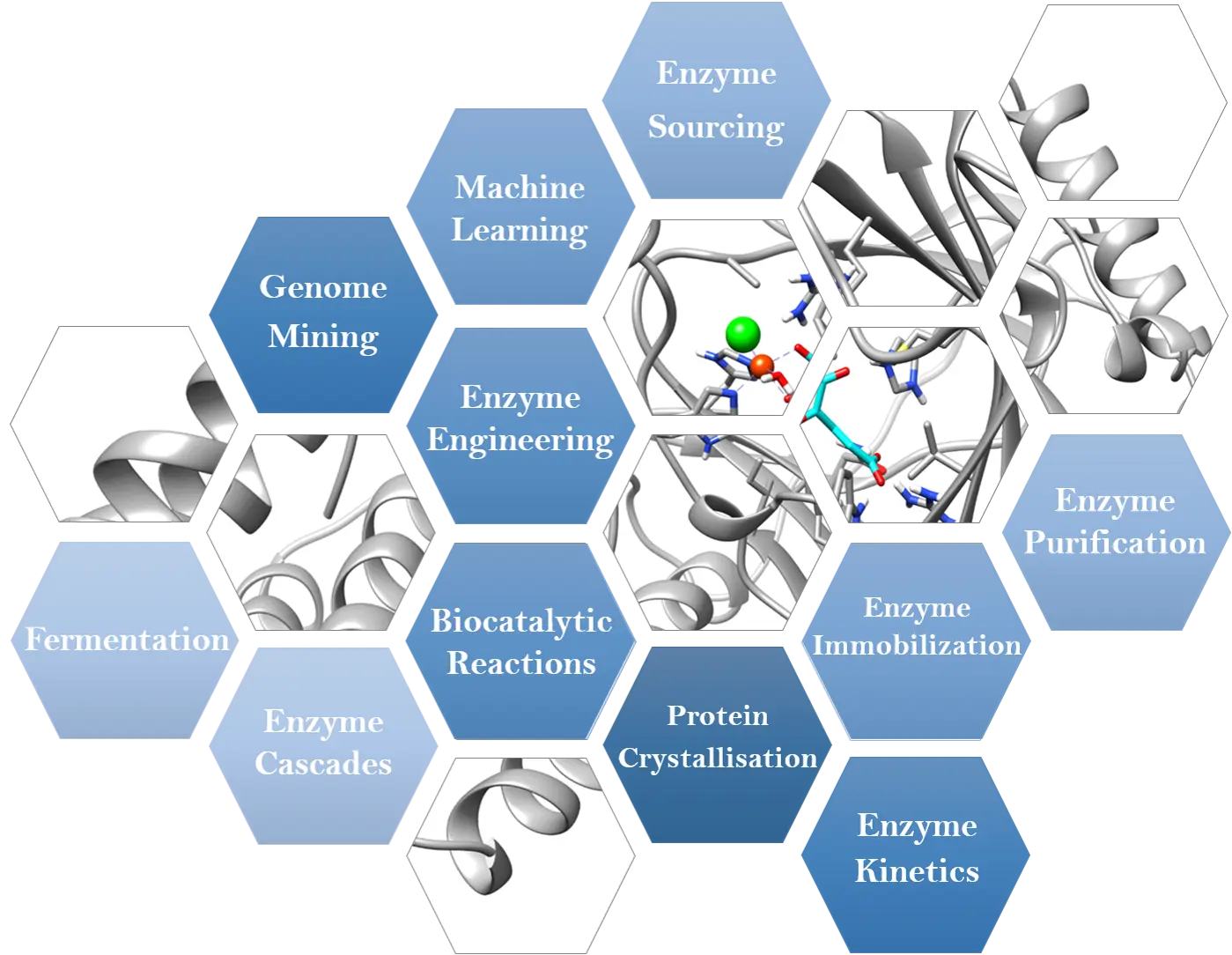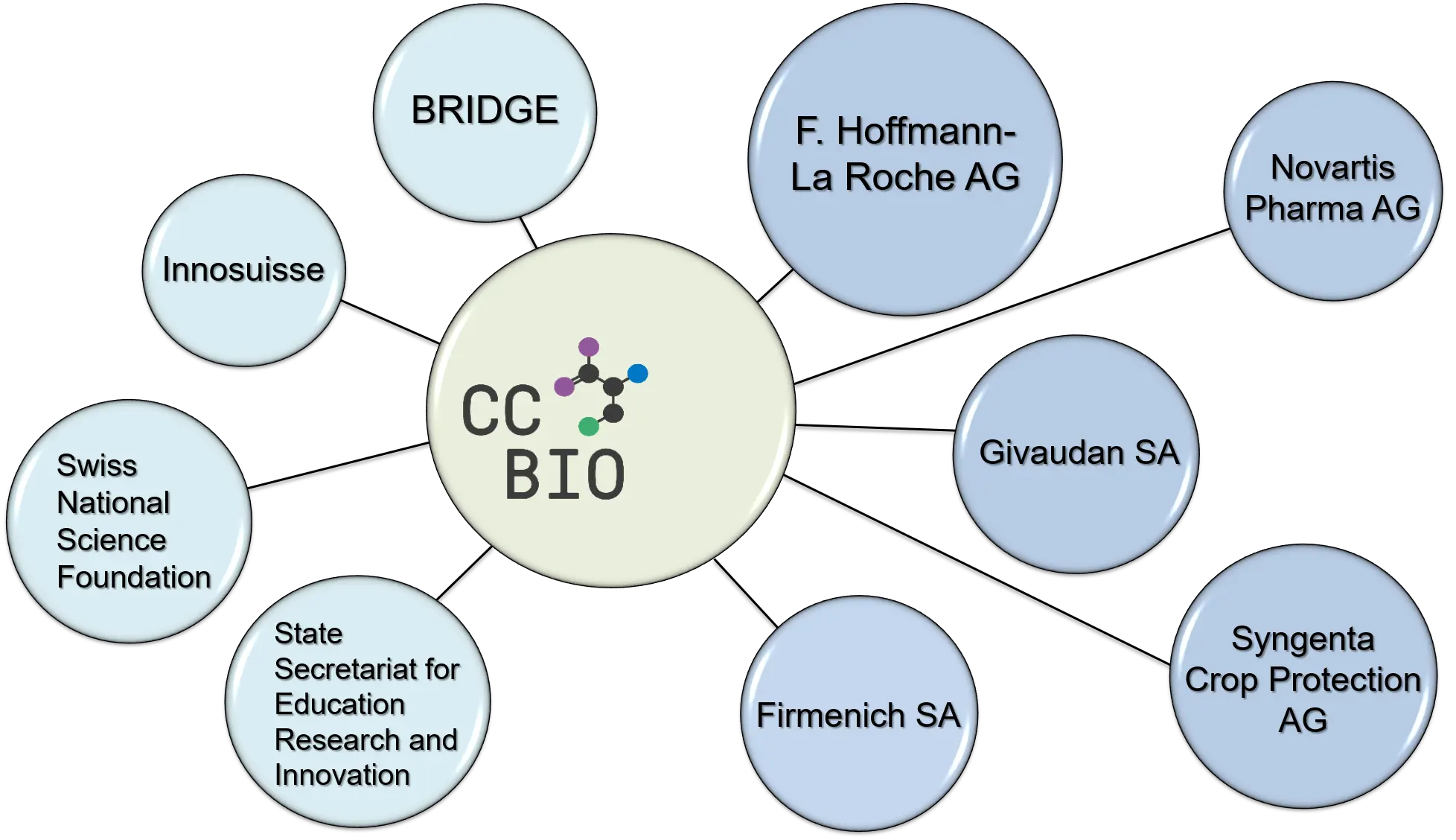Competence Center for Biocatalysis
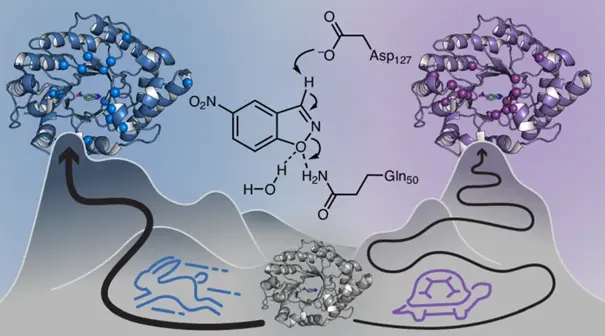
Enriching productive mutational paths accelerates enzyme evolution. Mimicking evolution by using repeated cycles of mutation, selection and amplification scientists have learned to tailor enzyme biocatalysts to fit certain applications. This process often requires screening large protein libraries. In our publication we show that by removing destabilizing mutations from sequence space while designing a library, the evolution of a computationally designed enzyme can be accelerated. In only five rounds of evolution a Kemp eliminase was generated that accelerates the proton abstraction step >10^8 fold and showed activity similar activity as a previously evolved enzyme that differs by 29 amino acid. Thus, a given protein scaffold can accommodate several, viable solutions to a specific catalytic problem. Nature Chemical Biology (2024) September 11. D. Patsch, T. Schwander, M. Voss, D. Schaub, S. Hüppi, M. Eichenberger, P. Stockinger, L. Schelbert, S. Giger, F. Peccati, G. Jiménez-Osés, M. Mutný, A. Krause, U. T. Bornscheuer, D. Hilvert & R. M. Buller.
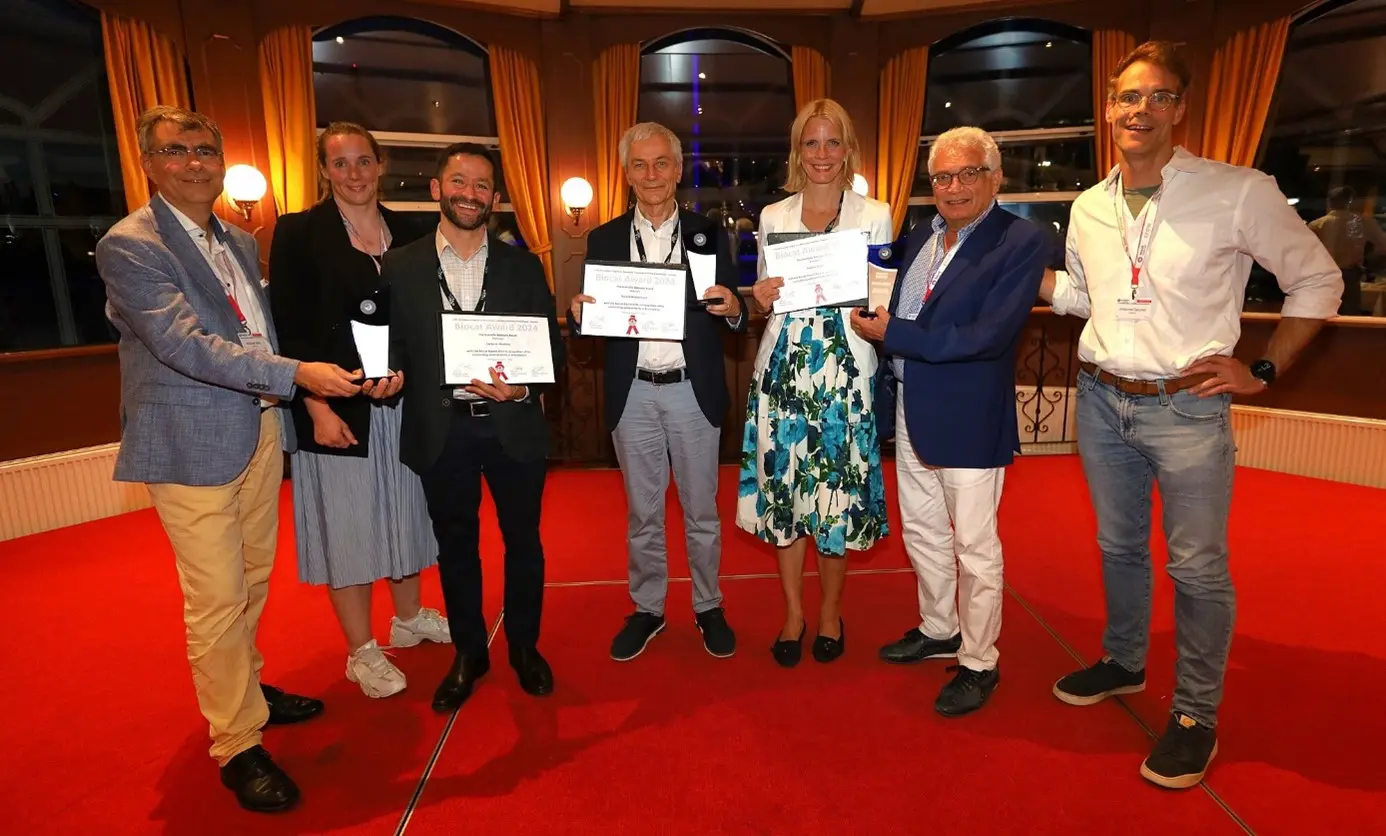
Rebecca Buller receives 2024 Biocat Award for “Academic Research”
At the 11th International Congress on Biocatalysis held at the Technische Universität Hamburg Prof. Dr Rebecca Buller (ZHAW) received the biocat award in the category “Academic Research”. Other award winners were Prof. Dr. Carlos Martínez (Pfizer Pharmaceuticals, USA) for “Industrial Research” and Prof. Dr. Roland Wohlgemuth (Lodz University of Technology, Poland) for “Lifetime Achievement”.

Lisa Schelbert wins the Lab Sciences Award 2024
Congratulations to Lisa Schelbert for winning this year’s Lab Sciences Award for her bachelor thesis “Optimization of the Kemp Eliminase HG3 by Protein Engineering”! Lisa studied the fitness landscape of engineered Kemp eliminases and contributed to the recent publication of the Buller lab on “Enriching productive mutational paths accelerates enzyme evolution” published in Nature Chemical Biology.
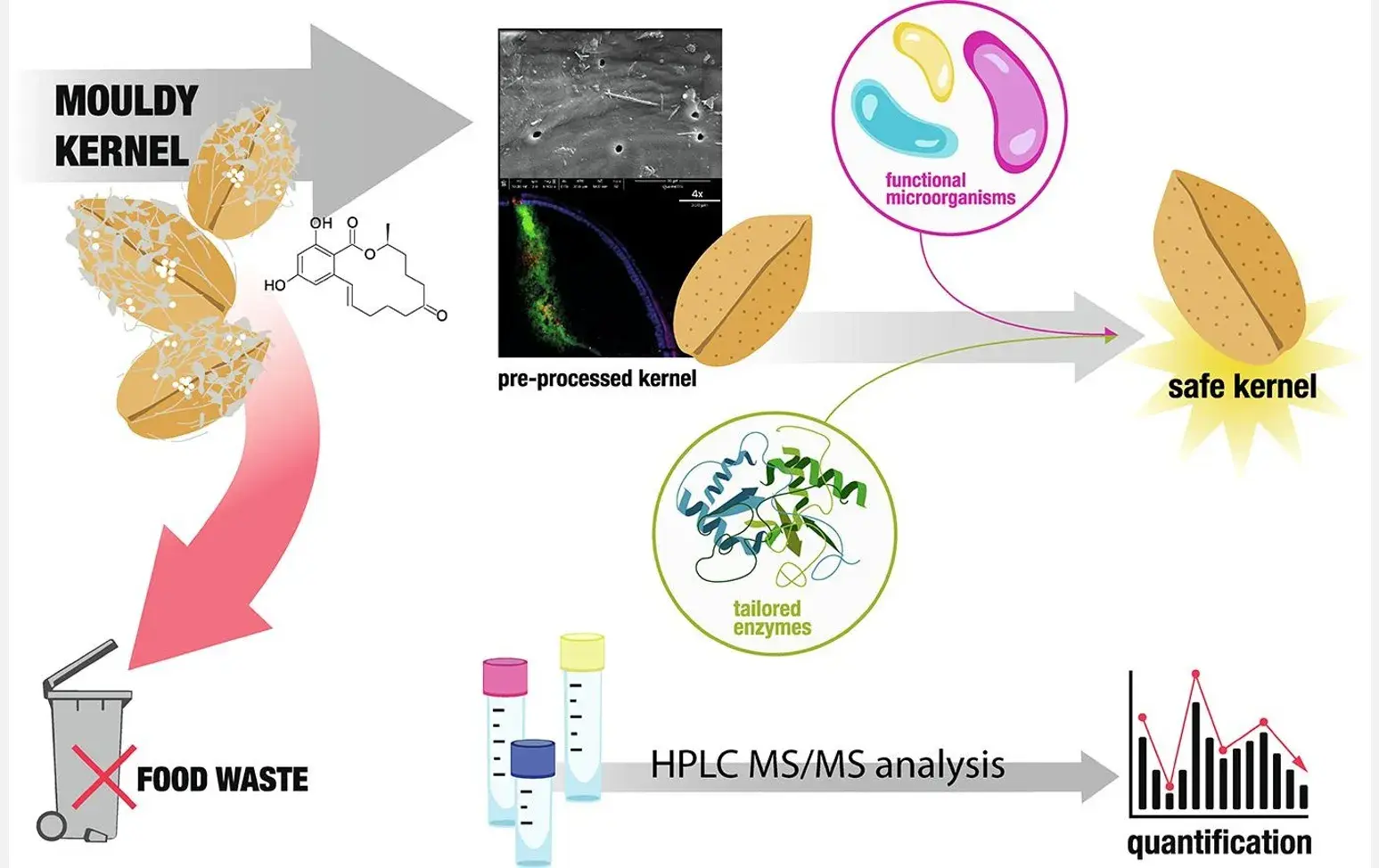
A new physical and biological strategy to reduce the content of zearalenone in infected wheat kernels: the effect of cold needle perforation, microorganisms, and purified enzyme. In a collaboration between the Institute of Food and Beverage Innovation and the Institute of Chemistry and Biotechnology decontamination strategies were evaluated aiming at reintroducing wheat grains naturally contaminated with mycotoxins into the food value chain. Food Research International (2024) June 6. A. André, K. Hecht, S. Mischler, L Stäheli, F. Kerhanaj, R. Buller, M. Kinner, S. Freimüller Leischtfeld, I. Chetschik, S. Miescher Schwenninger & N. Müller..
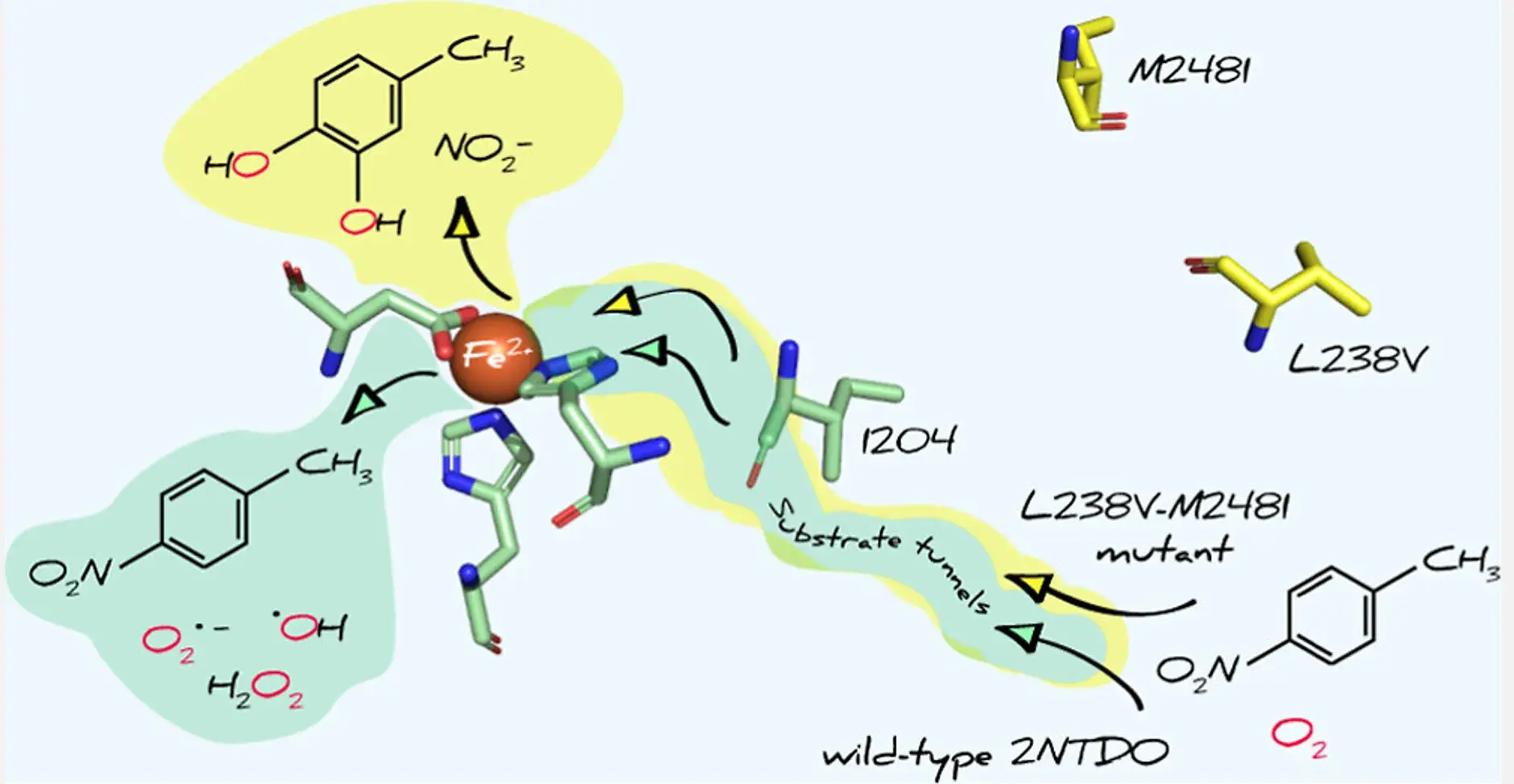
Elucidating the Role of O2 Uncoupling for the Adaptation of Bacterial Biodegradation Reactions Catalyzed by Rieske Oxygenases. Microorganisms quickly adapt their enzymatic machinery to changes in the exposure to xenobiotic compounds. Oxygenation of hydrocarbons by Rieske oxygenases is the initial step of various microbial biodegradation pathways. Oxidative stress triggers the evolution of these enzymes towards targets structurally related to the original target substrate. ACS ENVIRONMENTAL AU (2024) May 25. C. E. Bopp, N. M. Bernet, F. Meyer, R. Khan, S. L. Robinson, H.-P. E. Kohler, R. Buller & T. B. Hofstetter.
-> News

Rebecca Buller receives European EFMC award
Rebecca Buller wins this year's EFMC «Young Medicinal Chemist or Chemical Biologist in Academia» award. The award is presented by the European Federation of Medicinal Chemistry for outstanding achievements in the field of medicinal chemistry or chemical biology. The young researcher at the Institute of Chemistry and Biotechnology at the ZHAW in Wädenswil is one of the world's leading experts in the dynamically growing field of biocatalysis and enzyme engineering.
The Competence Center for Biocatalysis (CCBIO) at the ZHAW promotes biocatalysis as a complementary method to classic organic synthesis and aims to help bridge the gap between academic laboratories and the production plant. By connecting relevant research competencies CCBIO strives to develop a comprehensive biocatalytic toolbox consisting of enzyme libraries and methods, which will facilitate the development of biocatalytic and biosynthetic processes for the chemical and pharmaceutical industry.

The Competence Center of Biocatalysis (CCBIO) was founded in January 2016 and is led by Dr. Rebecca Buller, head of the Center for Biocatalysis, Environmental- and Process Technology. CCBIO is embedded in the ZHAW and operates the platform Biocatalysis and Biosynthesis within the National Thematic Network (NTN) Swiss Biotech. From 2017 to 2021 CCBIO led the network project «Innovation in Biocatalysis: A toolbox for sustainable bio-based production», a program supported by project contributions from the Swiss Higher Education Council. The section of Biocatalysis carries out several projects in close collaboration with academic and industrial partners.
Biocatalysis enables the sustainable production of chiral and highly functionalized compounds for the chemical and pharmaceutical industries. Recent developments in the field of DNA sequencing, gene synthesis and bioinformatics have enabled scientists to tailor biocatalysts to the needs of industry and to reorganize enzymes in biosynthetic pathways. This progress fueled the so-called «third wave of biocatalysis» and promises to unlock hitherto inaccessible enzyme activities for industrial biocatalysis and engineer microbial and fungal strains for the production of novel asset molecules.
The Competence Center for Biocatalysis and its members from various research disciplines provide the necessary know-how to master specific challenges in the field of biocatalysis together with industrial partners.
The goals are:
- Establish biocatalysis as an alternative to classical chemical synthesis
- Develop a comprehensive biocatalytic toolbox consisting of enzyme libraries and methods
- Facilitate the development of biocatalytic and biosynthetic processes for the chemical and pharmaceutical industry.
- Establish a national platform for scientific knowledge transfer and dialog for participants from industry and academia
- Strengthen the topic of biocatalysis within the teaching portfolio of Swiss Universities
The section of biocatalysis works closely together with members of the Competence Center of Biocatalysis (CCBIO) and academic and industrial partners.
- Within SINERGIA EnzyDEL in collaboration with the ETHZ the enzymatic construction of DNA-encoded chemical libraries is studied. Within SINERGIA EnzyDEL in collaboration with the ETHZ the enzymatic construction of DNA-encoded chemical libraries is studied.
- Within the Innosuisse Project 62643.1 IP-LS in collaboration with Novartis Pharma AG we work on a «Toolbox for the Development of novel CH-Activation Biocatalysts»
- Within the NCCR Catalysis «Data Driven Research Program» we evaluate together with A. Krause (ETHZ) a «High-throughput Pipeline for the Generation of Enzyme Sequence-Function Data».
- Within Innosuisse Projekt 46150.1 IP-LS we study in collaboration with Syngenta the «Biocatalytic halogenation for the sustainable development of agrochemicals».
- Within the Health Research Hub at the ZHAW we work with our colleagues from the Institute of Food and Beverage Innovation on «Strategies to reduce mycotoxins in grain» through the application of functional microorganisms and / or tailored enzymes.
- As a member of the National Centre of Competence in Research «NCCR-Catalysis», we develop biocatalysts for sustainable, resource-efficient and CO2-neutral chemical production based on abundant renewable resources.
- Bilateral project with Roche
- Within the framework of «Bridge» a «Toolbox Peptide-based drugs» is being developed.
- Within the network project Innovation in Biocatalysis enzymatic «Production of (R)-α-ionone(PDF 130,5 KB) (PDF 130 kB)» is studied and new «Halogenases(PDF 66,6 KB) (PDF 67 kB)» are being researched.
- In the Innosuisse Projekt 28285.1 PFLS-LS «alpha-ketoglutarate dependent enzymes as biocatalysts for sustainable chemical synthesis» are explored in collaboration with Novartis.
- In the Innosuisse Projekt 25929.2 PFLS-LS «Biocatalytic production of natural flavours and fragrances» is investigated together with Firmenich.
- In collaboration with CCOS (Culture Collection of Switzerland) an Ene Reductase Library is being established.
- Further projects include the optimisation of fermentations (partner not public).

The center started operating in 2016 under the leadership of Prof. Dr. Rebecca Buller and tackles multidisciplinary research projects combining tools of chemistry and biology using the expertise of its members.
Before joining the ZHAW, Prof. Dr. Rebecca Buller was Laboratory Head and Project Manager at Firmenich, a flavour and fragrance company. In this role, she developed and optimized several biocatalysis based processes for the manufacture of asset molecules. Additionally, Prof. Dr. Buller brings in-depth knowledge of enzyme engineering through her academic research at ETH Zurich.
Prof. Dr. Rebecca Buller received her Diploma degree in Chemistry from the University of Münster and studied at the University of California in Santa Barbara. She holds a PhD degree from the Institute of Chemistry and Applied Biosciences at ETH Zurich.

- Dr. Hans-Peter Meyer, HES-SO Valais-Wallis, Sion, Switzerland
- Prof. Dr. Roger Marti, HES-SO Valais-Wallis,Fribourg, Switzerland
- Dr. Thomas Münch, Givaudan SA, Kemptthal, Switzerland
- Prof. Dr. Ruth Freitag, University of Bayreuth, Bayreuth, Germany
- Dr. Andreas Taglieber, Firmenich SA, Genf, Switzerland
- Prof. Dr. Donald Hilvert, ETHZ, Zürich, Switzerland
- Prof. Dr. Uwe Bornscheuer, University of Greifswald, Greifswald, Germany
4th CCBIO Symposium «Industrial Biocatalysis»
The «4th CCBIO Symposium on Industrial Biocatalysis» took place on June 8th, 2023 on the ZHAW campus in Wädenswil. We could host more than 130 participants!
A big thank you to all speakers, attendees, and partners for their contributions and engaged discussions on the future of biocatalysis!
For more information about the speakers and their talks please check our Programme flyer of the 4th CCBIO Symposium on Industrial Biocatalysis (PDF 1.48 MB).
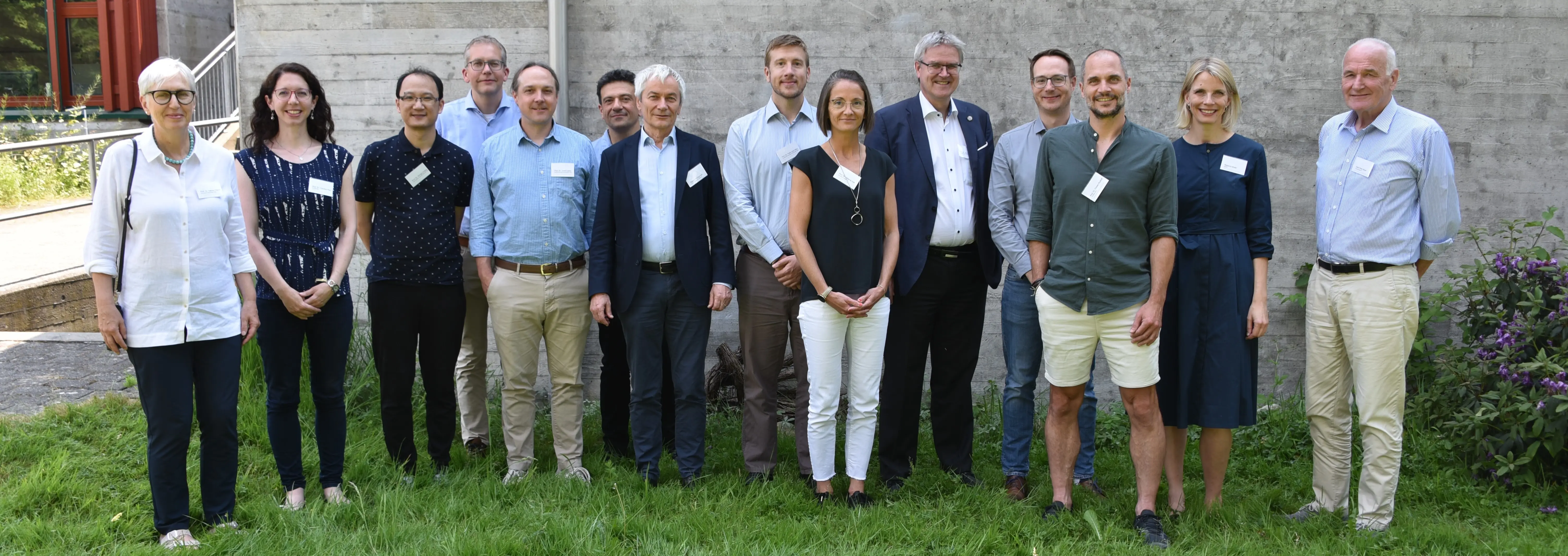
Prof. Dr. Sabine Flitsch (University of Manchester, UK); Prof. Dr. Caroline Paul (Delft University of Technology, NL); Prof. Dr. Xiongyi Huang (Johns Hopkins University, US); Prof. Dr. Gerard Roelfes (University of Groningen, NL); Prof. Dr. Jared Lewis (Indiana University Bloomington, US); Dr. Thierry Schlama (Novartis Pharma AG, CH); Prof. Dr. Roland Wohlgemuth (Lodz University of Technology, PL); Prof. Dr. Pablo Nikel (Technical University of Denmark, DK); Prof. Dr. Mélanie Hall (University of Graz, AT); Prof. Dr. Jörg Pietruszka (Heinrich-Heine-University Düsseldorf, DE); Dr. Christian Willrodt (BASF SE, DE); Prof. Dr. Florian Rudroff (Vienna University of Technology, AT); Prof. Dr. Rebecca Buller (ZHAW, CH); Dr. Hans-Peter Meyer, HES-SO and Expertinova AG, CH).
